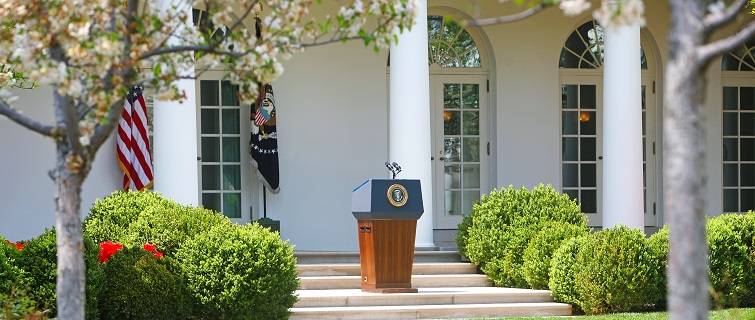By Deon J. Hampton
A group of Black journalism students who got a taste of being a White House correspondent for a day said the dream opportunity gave them the knowledge and motivation to become successful reporters and tackle news across America.
Students representing 47 historically Black colleges and universities were invited to an exclusive White House news briefing last week with Vice President Kamala Harris.
The students, who attended both in person and virtually, questioned Harris and other White House officials about HBCU funding, policies to ensure international students at Black colleges aren’t left behind, and issues concerning their communities.
Kalia Qawiy, 23, an aspiring TV news anchor at Albany State University in Georgia, asked White House officials how could smaller Black universities remain relevant in the ever-changing college landscape.
She said the preparation that went into her question is what she believes will take her journalistic career to new heights down the road.
“I had to figure out how to present it,” Qawiy said about the work she put into posing questions to high-ranking officials.
“It’s very important for us to get our voices heard,” said Qawiy, who took an interest in journalism because she enjoys getting information no one else has yet.
Kyla Hubbard, the editor-in-chief of her campus paper, The Famuan, at Florida A&M University, wanted to know what the White House could do to prevent Florida legislators from targeting diversity and inclusion funding at HBCUs.
White House officials responded by stressing that Florida residents should always exercise their right to vote in local and state elections to ensure HBCUs get their fair share of state funding.
The Biden administration made a historic investment in HBCUs at the height of the Covid-19 pandemic through the American Rescue Plan and other pandemic relief funds, which provided nearly $3.7 billion to the schools. In announcing the funding in 2021, officials cited disparities in resources and opportunities and the challenges brought on by the pandemic.
In addition, about $1.6 billion in debt relief went to 45 HBCUs in 2021, White House officials said.
The HBCU briefing was hosted by former Atlanta Mayor Keisha Lance Bottoms, the White House’s senior adviser for public engagement. White House officials this week announced that Bottoms would be leaving her position and returning home to Atlanta.
Bottoms said on Twitter that her term ended in January 2022 but that he was asked to stay on longer.
Harris and Bottoms graduated from HBCUs: Harris from Howard University and Bottoms from Florida A&M.
Some of the HBCUs that took part in the briefing were Miles College in Alabama, Norfolk State University in Virginia, Delaware State University, Langston University in Oklahoma and Wiley College in Texas.
As of 2021, there were 99 HBCUs in 19 states, Washington, D.C., and the U.S. Virgin Islands, according to the National Center for Education Statistics.
Seeing so many future Black journalists at the briefing made D’Marius Jones, a senior at Alcorn State University in Mississippi, realize just how competitive the industry can be. The role of news reporters, he said, is more important than ever.
“We need to dispel the rumors and inaccurate information,” he said.
Darianna McGee, a student at Lincoln University in Pennsylvania who wants to become a television producer, learned by watching the briefing online that reporters who asked direct questions got the best responses, which she plans to do once her career starts.
“That way, you’re less likely to get the runaround,” she said.

